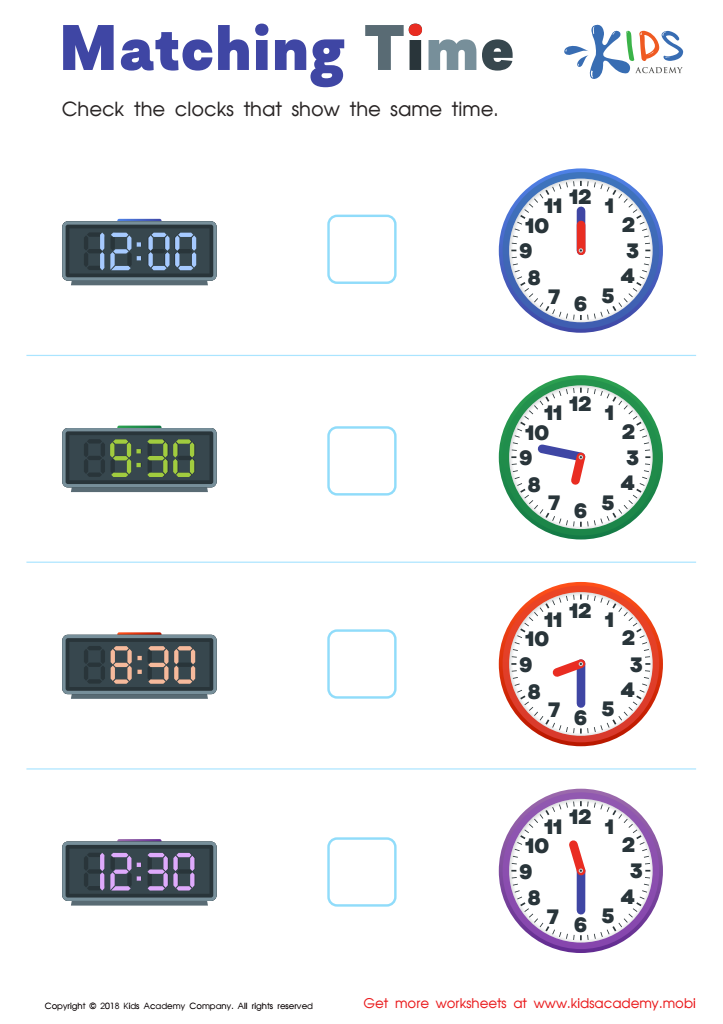Time Worksheets for Ages 3-8 - Page 2
25 filtered results
-
From - To


Matching Time Worksheet
Understanding the concept of time for children aged 3-8 is crucial for their cognitive development and daily life management. Parents and teachers should care about this for multiple reasons. Firstly, grasping time helps children develop a sense of routine and structure, allowing them to feel secure and understand what to expect throughout the day. It builds their ability to manage transitions between activities, which reduces anxiety and behavioral issues.
Secondly, learning about time is foundational for academic skills. Concepts like sequencing, ordering events, and understanding cause-and-effect relationships are firmly tied to their mastery of time. These skills are essential for literacy and mathematics. For instance, telling a story in the correct order or understanding days of the week ties into early reading and writing skills, while concepts of more or less time relate to math.
Additionally, teaching children about time enhances their executive functioning – skills like planning, problem-solving, and attention. It nurtures their ability to set goals, remember commitments, and understand limits, which helps in social settings and fosters responsibility and independence long-term.
Lastly, appreciating the concept of time assists children in grasping larger, abstract concepts and fosters curiosity about the wider world, preparing them effectively for later stages of education and life. Therefore, fostering an understanding of time from an early age is indispensable for holistic growth and development.
 Assign to My Students
Assign to My Students





















